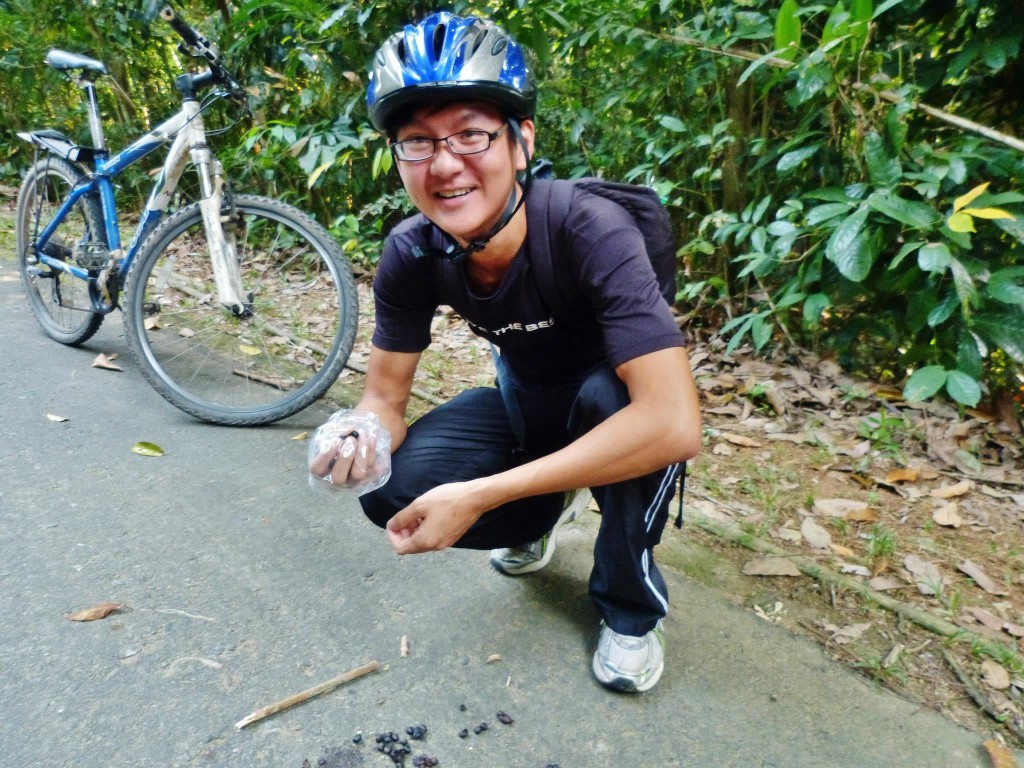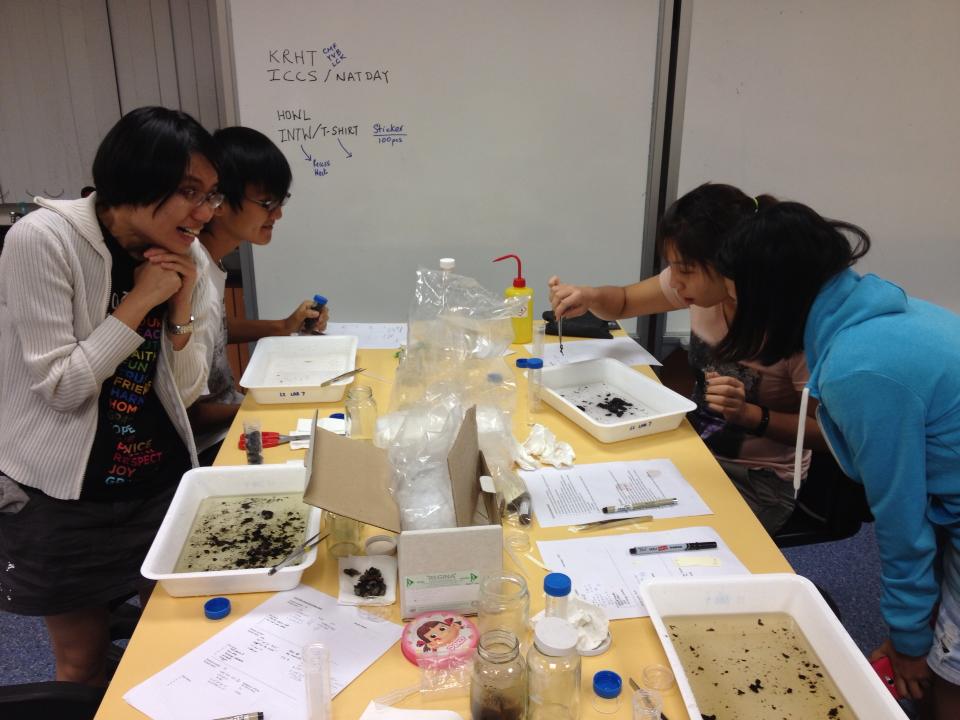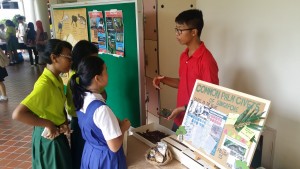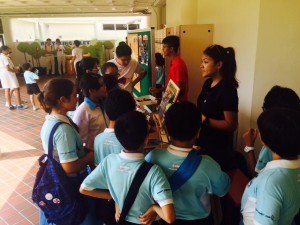A first-hand experience in common palm civet research: Reflections of a volunteer field assistant who helped out with a civet diet study
By Steward Lee, 2013.
“In my attempt to experience the local biodiversity and conservation scene, I volunteered to help out Tze Kwan in her civet research during my summer break. Here are some of my thoughts from the various experiences from my 2 months of field work and a civet poop sorting workshop/sharing session.
Experience as a civet poop scooper
Armed with enthusiasm and 100plus every week, I ventured to Pulau Ubin to help collect data to learn more about what civets eat and their potential ecological role as seed dispersers.
Through the fieldwork, I learnt that civets are omnivores, eating mainly fruits and sometimes insects, birds and rodents. From Tze Kwan’s galore of scat collection, there seemed to be frequent items found in their poop. For plants, it was fishtail palm, while animals were mainly insect parts. Cool right? Since civets are nocturnal, we do not see them around during the day. However, with poop around means there are civets around, but the intriguing question is, where do they hide in the day? Well, that will be another question for the future!
My job was to help spot and collect the often conspicuous civet scats as we cycled along trails. It was not long before I realize that they had the preference of leaving their mark right in the middle of trails. This conspicuous location could possibly be to mark territories but civets sure have the knack of selecting spots with good sceneries too.

Scooping civet poop!
Of course it wasn’t all work and no play. Every trip was an opportunity to learn and appreciate Singapore wildlife. Tze Kwan and the other research helpers were my nature guides as they kept me entertained by sharing both their knowledge and experiences. I have definitely learnt a lot, from the biodiversity of Singapore and Ubin, the ecosystems it possesses and of course on civets. Right now, I am even pretty confident of discerning the calls of kingfishers and the oriental pied hornbills.
I often marvel at the birds, insects or plants that my keen-eyed teammates pointed out. Many times, I would have so conveniently overlooked them. Their enthusiasm was contagious and definitely kept my spirits high. Having nature enthusiasts as company really brought my nature appreciation to a deeper level.
Learning from the outdoors to indoors
Besides helping Tze Kwan with her fieldwork, I also attended a civet sorting workshop and sharing session organised by the civetgirls where I learnt a couple of new information about the civets.

Civet poop sorting workshop!
From Weiting’s sharing on the urban civets, I learnt that the common palm civets can be found in our urban environment and are our last native urban carnivore. Due to their close proximity to our daily lives, I believe awareness and understanding is important to ensure peaceful coexistence.
For me, it is alarming that many cases of wildlife/conflict issues are often influenced by an outspoken minority. Majority of the public attitudes are positive or neutral towards the existence of wildlife within the vicinity of their living quarters but it is unfortunate that it is often the outspoken few that sways the action. Equipped with this knowledge from Weiting, I am sure that passing it on would help to create and increase awareness. This would be a great step forward if more encompassing solutions that promote coexistence can be agreed on.
Ongoing research by Weiting and Tze Kwan would reveal much more about the behavior, importance and the role that civets play in both the urban and forested environments. With continued efforts to increase awareness by research, outreach or by word of mouth, I am positive that not just civets but urban wildlife can peacefully coexist with us. I am sure that we can respect and appreciate these animals as unique indispensable habitants of our ecology and country too.”
Thank you Steward for your help and time with my fieldwork! I am glad you have learnt much about the common palm civet and our local biodiversity and are now involved in the conservation scene! All the best for your studies! – Tze Kwan

Happy Steward with Ubin durians! (Photo by Joys Tan)
Hours in the field are long and can be tiring, but it is an enriching journey and can be fun too, especially when it comes to collecting civet poop! Thank you all field assistants for your valuable help!








